The Bhasha Vasudha: Global Languages Meet was held over several venues in Gujarat, India from 7-8 January 2012. The Meet was the creation of language activist Dr Ganesh Devy of the Bhasha Research and Publication Centre, who in 2011 was awarded the International Linguapax Award in recognition of “a lifetime dedicated to the promotion, dignification and preservation of a multitude of languages in India”.
The Meet commenced at the Sir Sayajirao Auditorium in Vadodara with the release of the People’s Linguistic Survey of India (PLSI).
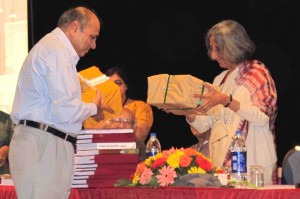
Photo 1. Ganesh Devy presents the PLSI to Ms. Vibha Puri Das, Secretary to the Government of India, Ministry of Human Resource Development, New Delhi.
This ambitious project is a partnership between scholars, writers and activists, which aims to capture how Indian people identify, name and perceive what they speak. It provides an overview of each language variety, along with short samples of the language. The PLSI is being published in English by Routledge, and in Hindi, Marathi, Gujarati and Oriya by various Indian publishing houses.
In the afternoon, the Meet moved to an outdoor venue at Parag Park, Dasharath. Here, the participants divided into some twelve groups seated on mattresses in tented areas across the park to discuss a wide range of topics including language policy, dialects and tribal languages in South India, mother language education, nomadic languages, and institutions and language conservation. As evening fell, the groups came back together to listen to reflections on Indigenous languages from a number of speakers, including linguist Lachman Khubchandani and poet, writer and social worker Mrs Ramnika Gupta, founder of the Ramnika Foundation which works for the awareness, empowerment and to develop leadership in excluded and marginalised communities. Denny Moore (Museu Goeldi, Brazil), Anne-Marie Wanamp (University of Goroka, Papua New Guinea), and Margaret Florey (RNLD, Australia) addressed concerns about endangered languages in their regions. The participants were particularly honoured to listen to Narayan Desai, who was raised in Mahatma Gandhi’s ashram as the son of Gandhi’s personal secretary and biographer Mahadev Desai. Narayan Desai was a member of the Indian Peace Brigade and founded the Institute for Total Revolution which imparts training in non-violence and a Gandhian way of life.
The following day the Meet moved some 100 km to the Adivasi Academy in Tejgadh. The Academy, founded by Ganesh Devy, encompasses all aspects of development concerning the tribal regions in Gujarat and Maharashtra. Devy believes that Indigenous languages will only survive if there is a sustainable economic and social base in the homeland. Thus the comprehensive program he is developing amongst the adivisi (tribal peoples) is based around a Green Economic Zone (GEZ) encompassing ecological conservation, development of a strong skills base and local employment, a micro-credit scheme, health care, and an innovative educational program.
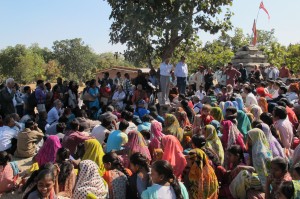
Photo 3. The crowd of local and international participants listen to Ganesh Devy
A Bhasha-Van (Forest of Language) is being developed at the Adivasi Academy. Currently, trees have been planted to represent the languages of India.
In the coming months, the forest will expand to include languages of the world. Ganesh Devy later plans to fit the trees with bio-sensors so that every time a visitor passes a tree in the forest it will speak or sing in an Indian language.
An exhibition ‘Through the eye of the ancestor’ was installed in an outdoor setting against a backdrop of hills and rocky outcrops. The exhibition consisted of photos of the cultural heritage of the Adivasi, repatriated from the SOAS archive (Furer-Haimedorf), the Grassi Museum für Völkerkunde, Leipzig, Germany (Eickstedt archive), and the Museum of Archaeology and Anthropology in Cambridge (Archer and Milward archives).
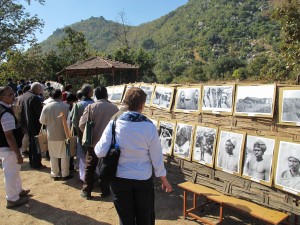
Photo 5. Visitors viewing the exhibition
The final session of the Global Languages Meet took place in the open courtyard of the Academy. Here, Devy again called on a number of speakers to address the participants informally on endangered language issues.
This occasion also offered an international launching platform for the Consortium on Training in Language Documentation and Conservation (CTLDC). RNLD’s Senior Linguist and CTLDC co-convenor Margaret Florey launched the Consortium in the company of planning group members Ganesh Devy (India), Akhunzada Fakhruddin (Pakistan), Lungtaen Gyatso (Bhutan), Peter Keegan (New Zealand), Anne-Marie Wanamp
(Papua New Guinea).
Photo 6. CTLDC members at the launch
The CTLDC is now open for membership and all are encouraged to join.
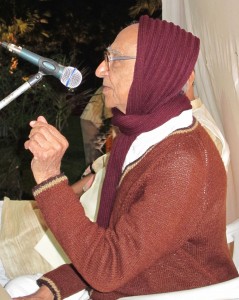
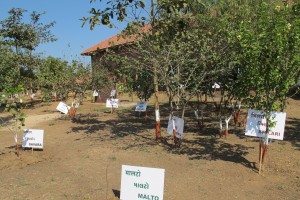
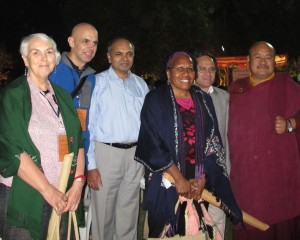
 Follow
Follow
What a rich event – and thanks for the pictorial documentation!
Lovely to see familiar faces in the photos, and what a fantastic way to kick off the CTLDC!